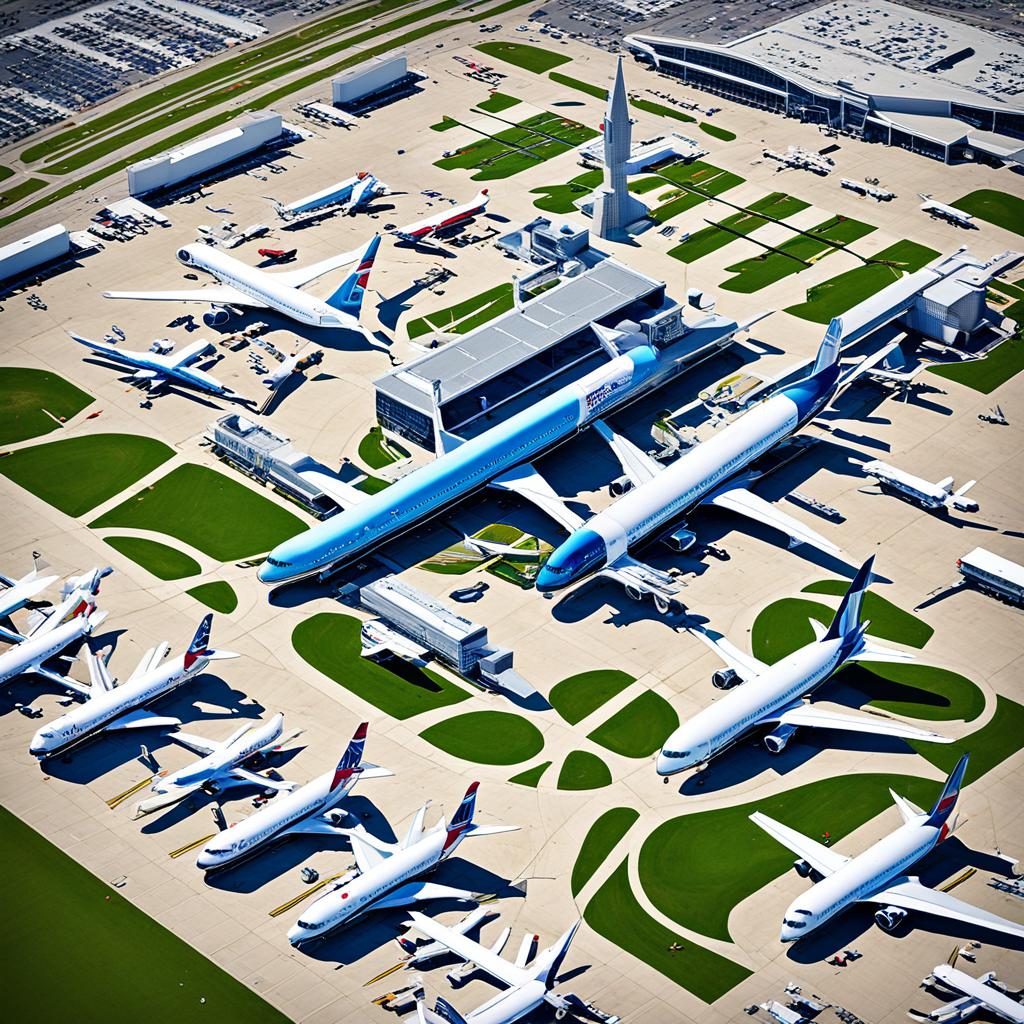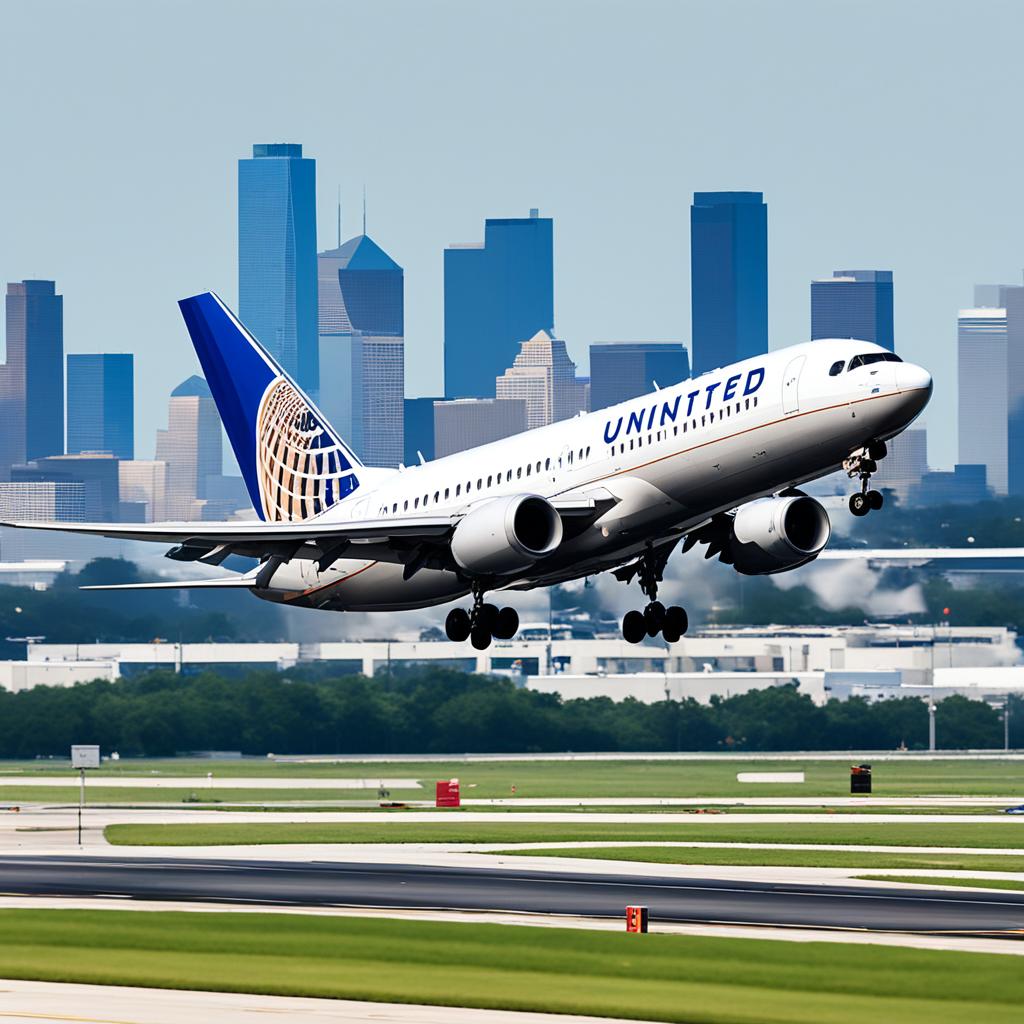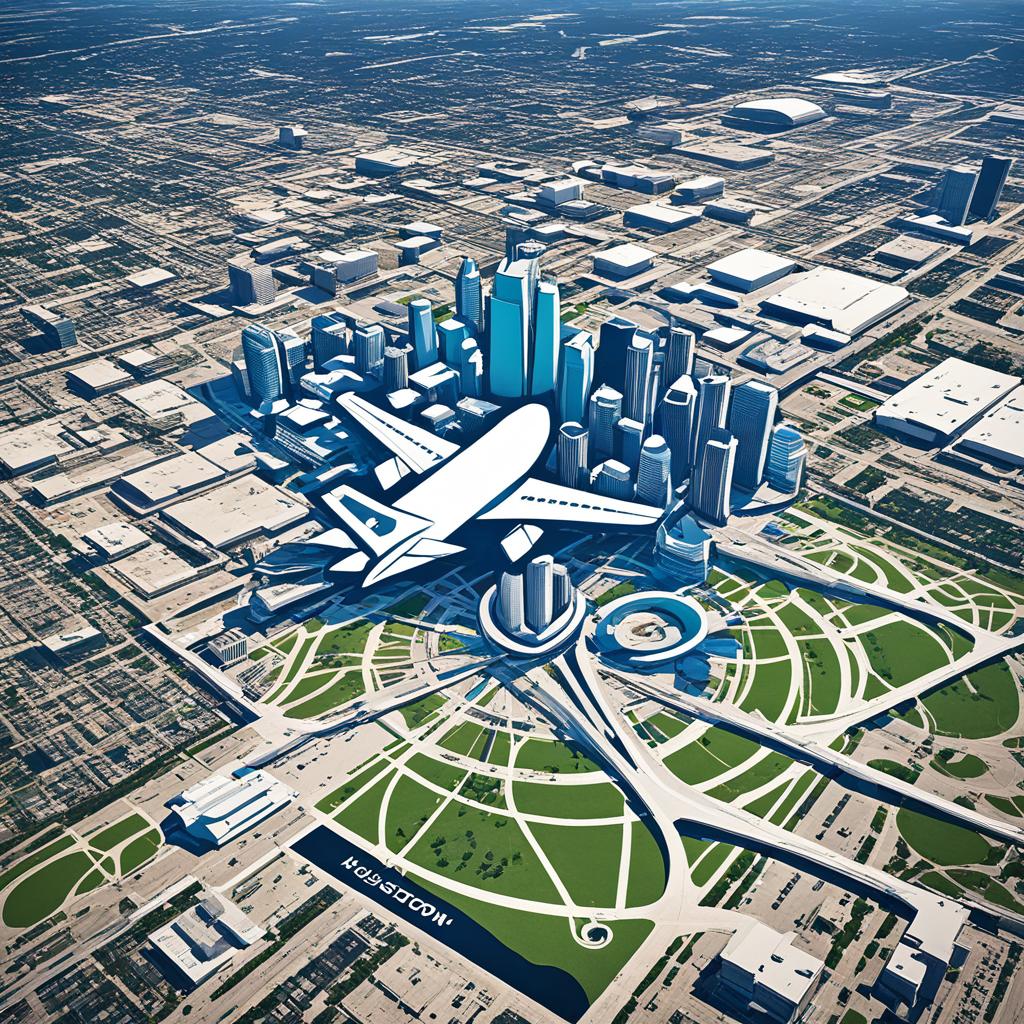When it comes to air travel, knowing which airlines have hubs in a specific city can greatly impact your travel experience. But have you ever wondered which airlines have hubs in Houston, Texas? It’s time to find out!
As one of the busiest cities in the United States, Houston is home to several airports and serves as a major hub for various airlines. In this article, we will explore the airline hubs in Houston, uncovering the key players and the destinations they offer. Whether you’re a frequent traveler or planning your next vacation, this information will help you make informed decisions and choose the most convenient options for your journey.
George Bush Intercontinental Airport (IAH)

George Bush Intercontinental Airport (IAH) is an international airport located about 23 miles north of Downtown Houston. Covering 10,000 acres of land, it is one of the largest airports in the United States. With five runways and a state-of-the-art terminal, IAH offers passengers a seamless travel experience.
As a major hub for United Airlines, George Bush Intercontinental Airport provides extensive flight options to both domestic and international destinations. Whether you’re traveling within the United States or exploring destinations around the world, IAH serves as a convenient gateway.
| IAH Airport Information | |
|---|---|
| Location | Houston, Texas |
| Land Area | 10,000 acres |
| Runways | 5 |
George Bush Intercontinental Airport (IAH) is not only a hub for United Airlines but also serves as a vital connection point for other airlines and travelers. Its strategic location, modern facilities, and extensive flight options make it a popular choice for those flying in and out of Houston.
United Airlines

United Airlines, one of the major players in the aviation industry, operates a major hub at George Bush Intercontinental Airport in Houston. With a comprehensive network of flights, United Airlines connects passengers from Houston to various destinations across the United States and around the world, making it a convenient choice for both domestic and international travel.
As one of the largest passenger hubs for the airline, George Bush Intercontinental Airport serves as a vital link in United Airlines’ operations. From this hub, travelers can explore a multitude of destinations, ranging from vibrant cities to tranquil beaches, and experience the world through United Airlines’ extensive route network.
Whether you’re planning a business trip, a family vacation, or a weekend getaway, United Airlines offers a wide range of flight options to suit your needs. With a focus on customer satisfaction, United Airlines strives to provide a seamless and enjoyable travel experience for all passengers.
| Benefits of Choosing United Airlines | Destinations |
|---|---|
| Award-winning in-flight service | Over 300 domestic destinations |
| Modern and comfortable aircraft | International flights to all major continents |
| Extensive route network | Convenient connections |
| Flexible booking options | Access to United Club lounges |
With United Airlines’ hub in Houston, travelers have access to a wide range of travel options and can easily reach their desired destinations. Whether you’re flying for business or pleasure, United Airlines is committed to providing reliable service and ensuring a satisfying journey for every passenger.
Other Airline Hubs in Houston

Apart from George Bush Intercontinental Airport, Houston is also served by other airline hubs. These include William P. Hobby Airport (HOU), which is a focus city for Southwest Airlines, and George Bush Intercontinental Airport (IAH), which is an operating base for Spirit Airlines.
William P. Hobby Airport (HOU) is located about seven miles southeast of downtown Houston. It primarily serves as a regional airport, offering a variety of domestic flights, including numerous routes operated by Southwest Airlines, one of the largest low-cost carriers in the United States.
George Bush Intercontinental Airport (IAH), in addition to being a major hub for United Airlines, also serves as an operating base for Spirit Airlines. Spirit Airlines is an ultra-low-cost carrier that provides affordable domestic and international flights from Houston.
With multiple airline hubs in Houston, travelers have a range of options when it comes to planning their flights. Whether you’re looking for domestic or international travel, these airline hubs offer convenient connections and a diverse selection of destinations.
Southwest Airlines
Southwest Airlines operates a major hub at William P. Hobby Airport in Houston. Founded in 1967, Southwest Airlines is one of the largest low-cost carriers in the United States, offering affordable and convenient travel options to passengers.
At William P. Hobby Airport, Southwest Airlines provides a wide range of domestic flights, connecting Houston to various cities across the country. Whether you’re traveling for business or leisure, Southwest Airlines offers flexibility and reliability, ensuring a seamless travel experience.
With its focus on customer service and competitive fares, Southwest Airlines has gained a strong reputation in the aviation industry. Passengers can enjoy amenities such as complimentary snacks, Wi-Fi access on certain flights, and friendly customer service.
Southwest Airlines’ presence at William P. Hobby Airport provides an additional travel option for residents of the Houston region. With its convenient location and extensive domestic network, travelers can easily access multiple destinations from this hub.
**
Advantages of Flying with Southwest Airlines:
**
- Low-cost fares
- Flexible booking options
- Extensive domestic network
- Complimentary snacks and beverages
- Friendly customer service
**
Affordable Convenience: William P. Hobby Airport
**
Located about 11 miles southeast of downtown Houston, William P. Hobby Airport is a convenient option for travelers in the Houston region. The airport offers a range of amenities, including dining options, shops, and transportation services. With Southwest Airlines as a major hub, passengers can easily access affordable flights to various destinations, making it a preferred choice for many.
American Airlines
Although not directly located in Houston, American Airlines has a major hub at Dallas/Fort Worth International Airport (DFW). As one of the largest airlines in the world, American Airlines offers numerous flights to and from Houston, providing travelers in the area with convenient travel options.
DFW, situated within close proximity to Houston, serves as an important connecting point for American Airlines passengers. With a wide range of domestic and international flights, the airport offers seamless connections to various destinations.
Delta Air Lines
Delta Air Lines, a major player in the airline industry, does not have a hub in Houston. However, it operates several flights to and from Houston from its major hubs, including Hartsfield-Jackson Atlanta International Airport (ATL) and Detroit Metropolitan Airport (DTW). While Delta Air Lines may not have a dedicated hub in Houston, it still provides convenient travel options for those looking to fly to and from the city.
With a strong network of flights connecting Houston to major cities across the United States and beyond, Delta Air Lines offers travelers a wide range of options. Whether you’re traveling for business or pleasure, Delta Air Lines can help get you where you need to go.
| Delta Air Lines Flights from Houston | Delta Air Lines Hubs |
|---|---|
| Flights to Atlanta (ATL) | Hartsfield-Jackson Atlanta International Airport (ATL) |
| Flights to Detroit (DTW) | Detroit Metropolitan Wayne County Airport (DTW) |
| Flights to other destinations | Various Delta Air Lines hubs |
While not having a hub in Houston, Delta Air Lines still ensures excellent connectivity for passengers traveling to and from the city. With flights to major hubs such as Atlanta and Detroit, Delta Air Lines remains a reliable choice for your travel needs.
Conclusion
Knowing which airlines have hubs in Houston can greatly benefit travelers in planning their future travel itineraries and selecting the most convenient options. With George Bush Intercontinental Airport serving as a major hub for United Airlines and William P. Hobby Airport as a focus city for Southwest Airlines, travelers have a range of choices when flying in and out of Houston. Furthermore, the proximity of Dallas/Fort Worth International Airport, a major hub for American Airlines, offers additional travel options for those in the Houston area.
Having multiple airline hubs in Houston provides travelers with increased flexibility and convenience. Whether you’re flying domestically or internationally, these airline hubs offer a variety of destinations and flight options to suit your travel needs. Additionally, the presence of multiple airline hubs in Houston encourages healthy competition among airlines, resulting in potentially better fares and more frequent flight schedules.
When planning your next trip from or to Houston, consider the airline hubs available to you. George Bush Intercontinental Airport, William P. Hobby Airport, and Dallas/Fort Worth International Airport offer diverse travel options, ensuring that you can find flights that meet your preferences and requirements. By utilizing these airline hubs, you can make your travel experience to or from Houston more convenient, accessible, and enjoyable.


